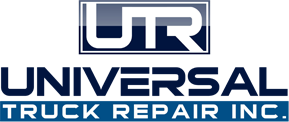Semi-trucks have complex electrical systems. They control lights, engine starts, climate control, and more. When these systems stop working, towing is often needed. A dead battery is one of the top reasons semi-trucks need roadside assistance. Batteries power ignition systems, starter motors, and electronics. If they are weak or damaged, the vehicle will not start. Cold weather, long idle times, or bad alternators drain battery power. Worn-out wiring is also a cause of electrical failure. Loose wires, corroded terminals, and cracked insulation stop electricity from reaching where it needs to go. A failed electrical system leaves drivers stranded. This creates downtime, delays, and towing costs.
Alternator Failure Leads to Electrical Breakdown
Alternators charge the battery and power the vehicle while it runs. A broken alternator stops the battery from charging. Lights dim. Gauges fail. The engine may shut off. Drivers see warning lights or hear strange noises. Without a working alternator, the battery dies fast. Semi-trucks often run long hours. This puts more stress on alternators. Worn belts or loose connections make problems worse. A failed alternator is a common issue. Many semi-truck breakdowns start with small signs of alternator trouble. Catching these early can prevent road failures. Repairing alternators before they fail avoids roadside breakdowns.
Starter Motor Trouble Prevents Vehicle Startup
The starter motor turns the engine over when the key is turned. If the starter fails, the engine will not crank. The truck is stuck. Starter failure is another leading electrical issue in semi-trucks. Drivers hear a clicking sound or silence when they try to start the vehicle. Problems include worn solenoids, damaged gears, or loose wiring. Heat and vibration from diesel engines make starters wear out. Semi-trucks carry heavy loads and run for long hours. This puts more stress on starter systems. A failed starter causes instant downtime. These breakdowns lead to calls for towing and roadside repair.
Semi Roadside Assistance for Electrical Failures
Universal Truck Repair Inc provides solutions for semi-trucks with electrical problems. We help semi trucks with failed batteries, broken alternators, and starter issues. Our roadside service reaches drivers fast. We bring the right tools to jump-start, diagnose, or fix the vehicle. Our shop also offers full repairs for electrical systems. Universal Truck Repair Inc makes it easy to get back on the road. We work with semis to schedule regular checks. Preventive repair stops these problems before they need towing. Our semi truck service keeps electrical systems working. We help trucks stay safe, reliable, and on schedule.

